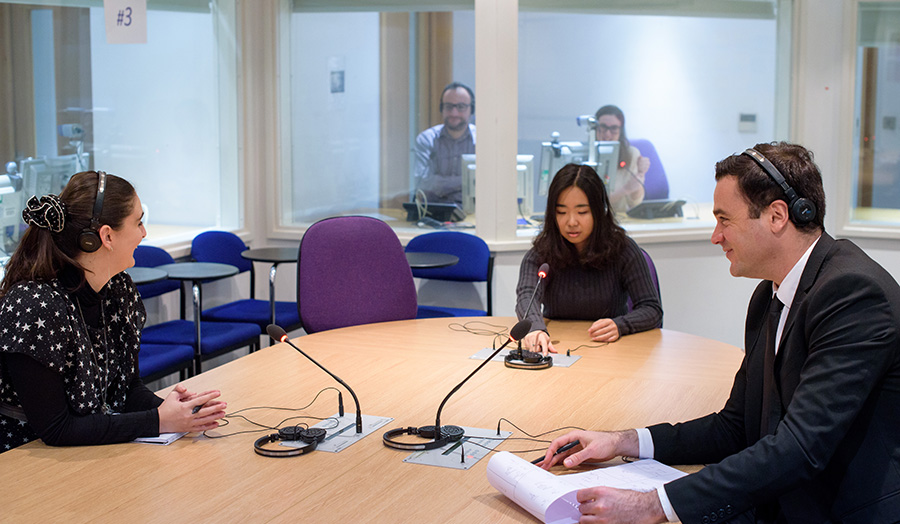Conference Interpreting MA graduate James Harris explains the differences between interpreting and translation, and contemplates a post-Brexit future for skilled interpreters.
Interpreting and translation – what is the difference?
"Telling people you study interpreting is a strange thing. Often people don’t know what it actually is. In Britain, we often mix up translating and interpreting. We talk about a visiting dignitary's ‘translator’ or use the word it interchangeably with ‘interpreter.’
To be precise, interpreting is the translation of spoken messages, whereas translation is the translation of written ones. In interpreting you say what someone else said in a different language, and you do it as accurately as you can."
What attracted you to this course in particular?
With its MA in Conference Interpreting, London Metropolitan University provides one of the best graduate interpreting programmes in the country. Indeed it’s a course with a worldwide reputation. Every day you can find trainee interpreters from all over the globe in the University’s business school campus, practicing all aspects of interpreting.
Can you explain a little more about the course itself?
"As a rare English native speaker on the course, I translate exclusively into my mother tongue, but most of our interpreters go in both directions, from and into English. We study two main modes of interpreting; consecutive, where a speaker speaks for a while and then you give a version of their entire speech, and simultaneous; where a speaker speaks and you interpret along with them in real time.
The student body is truly international. On this course there are French, Italian, Spanish, German, Chinese, Japanese, Turkish, Polish and Russian students.
When researching interpreting MAs, I found that no other comparable course offered such a range of languages. It’s a thrill to be part of such a diverse student body, and, as an English native speaker, have the responsibility of furnishing the other students with as much vocabulary and as many idioms as possible!"
What do you think might happen with the profession going forward?
"Despite the positive student experience at London Met, many interpreting courses across the UK are closing, or lowering their standards, and the culture of ignorance around the subject mentioned at the beginning also has an effect. In the UK, our lack of language skills leads to them being undervalued, when in fact it’s estimated that a shortage of these skills costs the country £48 billion a year. And surely that demand will only increase after Brexit, what with all those trade deals to be struck. In this challenging environment, the Conference Interpreting MA course represents a real asset for London Met."
And might interpreting itself cease to exist? Some people in the sector are concerned about the advent of earpiece translators. Professor Danielle D’Hayer, our course leader and Professor of Interpreting Studies, appeared on BBC Radio 4’s Today to discuss the topic:
"The world is changing and evolving all the time and we've got to adapt. I think technology can really help interpreters... We are not interpreting words, we are interpreting ideas. For us, accuracy is not a word-for-word rendition, it's actually accurate ideas... and it’s not so much word-for-word rendition which is what we call 'parroting,’” Danielle said.
So it seems like interpreters will be around for a good while yet.

